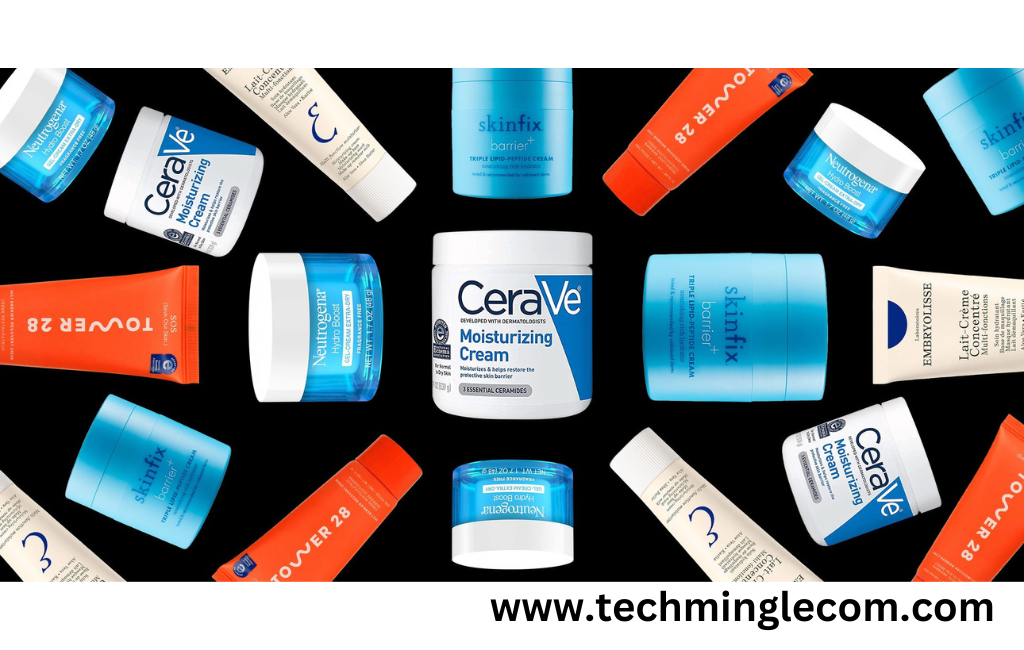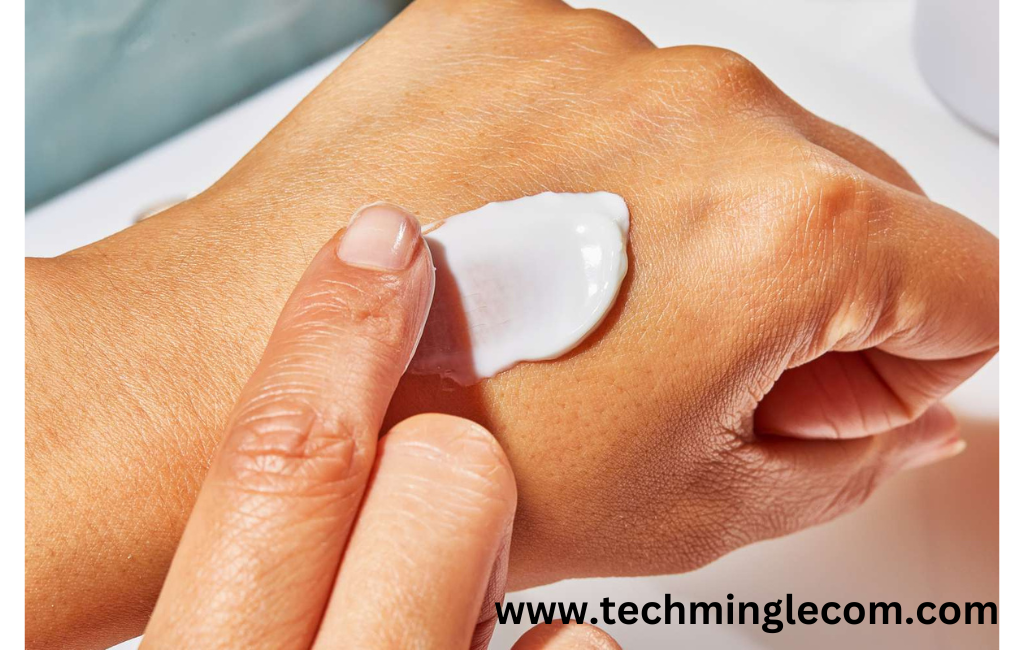
Moisturizers for dry skin :100% Find Your Perfect Match
Introduction to Moisturizers for dry skin
Dry skin can be a persistent and uncomfortable problem, but the right Moisturizers for dry skin can make a world of difference. Moisturizing not only hydrates the skin but also protects it from various environmental aggressors. Understanding dry skin and the best ways to manage it is crucial for maintaining healthy, glowing skin.
What Causes Dry Skin?
Environmental Factors
Dry skin is often caused by environmental conditions such as cold weather, low humidity, and exposure to harsh winds.These factors deplete the skin’s natural moisture, resulting in dryness and irritation.
Genetics
Some people are genetically predisposed to dry skin. If your parents or grandparents had dry skin, you might be more likely to experience it as well.
Lifestyle Choices
Certain lifestyle choices, such as taking long, hot showers or using harsh soaps, can also contribute to dry skin. Additionally, not drinking enough water or consuming a diet low in essential fatty acids can exacerbate the problem.
Benefits of Using Moisturizers for dry skin

Hydration
One of the primary benefits of using moisturizers is hydration. Moisturizers provide essential moisture to the skin, preventing it from becoming dry and flaky. This is especially important for individuals with dry skin, as their skin often struggles to retain sufficient moisture on its own.
Skin Barrier Protection
Moisturizers help to reinforce the skin’s natural barrier. This barrier is crucial for protecting the skin from environmental stressors such as pollution, harsh weather, and UV radiation. By strengthening this barrier, moisturizers help to prevent damage and maintain overall skin health.
Improved Skin Texture
Regular use of a moisturizer can significantly improve the texture of the skin. Dry skin can often feel rough and uneven, but moisturizing helps to smooth out these inconsistencies, leaving the skin feeling soft and supple. This improved texture not only feels better but also looks more vibrant and healthy.
Prevention of Premature Aging
Dry skin tends to be more susceptible to developing fine lines and wrinkles.By keeping the skin hydrated, moisturizers can help to prevent these early signs of aging. Well-hydrated skin is more resilient and better able to maintain its elasticity, which contributes to a youthful appearance.
Relief from Discomfort
Dry skin can often be itchy and uncomfortable. Moisturizers provide relief from this discomfort by soothing the skin and reducing irritation. Ingredients such as aloe vera, chamomile, and oatmeal are particularly effective in calming sensitive or irritated skin.
Enhanced Absorption of Other Products
Using a moisturizer can also enhance the absorption of other skincare products. When the skin is well-hydrated, it is better able to absorb active ingredients from serums, treatments, and other skincare products, making them more effective.
Protection Against Environmental Damage
Moisturizers with added antioxidants, such as vitamin C and E, provide additional protection against environmental damage. These antioxidants help to neutralize free radicals, which can cause oxidative stress and damage to the skin.
Types of Moisturizers for dry skin

Humectants
Humectants are ingredients that attract water from the environment and deeper layers of the skin to the surface, keeping the skin hydrated and plump.
How They Work: Humectants function by binding water molecules and drawing moisture into the skin, ensuring it remains hydrated.
Examples:
- Hyaluronic Acid:
- Hyaluronic Acid is renowned for its capacity to retain up to 1,000 times its weight in water, making it an exceptionally effective hydrating agent.
- Glycerin:
- A common humectant that effectively draws moisture into the skin.
- Urea:
- Not only hydrates but also has exfoliating properties.
Emollients
Emollients fill in the gaps between skin cells, creating a smooth surface and helping to soften and soothe dry, rough skin.
How They Work: Emollients work by forming a protective layer on the skin’s surface, filling in cracks and gaps to create a smoother texture.
Examples:
- Shea Butter:
- Rich in vitamins and fatty acids, shea butter is a superb emollient that nourishes and hydrates the skin.
- Squalane:
- A lightweight oil that mimics the skin’s natural oils, providing deep hydration without feeling greasy.
- Lanolin:
- Derived from sheep’s wool, lanolin is excellent for moisturizing and protecting the skin.
Occlusives
Occlusives form a protective barrier on the skin’s surface, preventing water loss and providing intense hydration, particularly beneficial for extremely dry or cracked skin.
How They Work: Occlusives create a physical barrier that locks moisture in and prevents it from evaporating, keeping the skin hydrated for longer periods.
Examples:
- Petrolatum:
- Often found in products like Vaseline, petrolatum is an effective occlusive that locks in moisture.
- Beeswax:
- Natural occlusive that forms a protective barrier on the skin.
- Mineral Oil:
- Commonly used in skincare products, mineral oil is an effective occlusive that helps retain moisture.
Key Ingredients to Seek in Moisturizers for Dry Skin
Hyaluronic Acid
This powerful humectant can hold up to 1,000 times its weight in water, making it incredibly effective at hydrating the skin.
Glycerin
Glycerin is another excellent humectant that draws moisture into the skin, helping to keep it hydrated and smooth.
Ceramides
Ceramides are fats that aid in restoring the skin’s natural barrier, guarding against moisture loss and shielding from environmental damage.
Shea Butter
Rich in vitamins and fatty acids, shea butter is a superb emollient that nourishes and hydrates the skin.
Natural Oils
Oils like jojoba, almond, and avocado oil provide intense hydration and nourishment to dry skin.
Ingredients to Avoid of Moisturizers for dry skin

Alcohol
Alcohol can be very drying to the skin, stripping it of its natural oils and exacerbating dryness.
Fragrances
Fragrances can irritate sensitive skin and cause allergic reactions, leading to further dryness and discomfort.
Sulfates
Sulfates are harsh detergents that can strip the skin of its natural oils, leaving it dry and irritated.
Choosing the Right Moisturizer for dry Skin Type
Understanding your skin type is essential for choosing the right moisturizer. Dry skin types benefit from thicker, more emollient-rich formulas, while combination skin may require a lighter, more balanced moisturizer. Always look for products that match your specific needs and concerns.
How to Apply Correctly Moisturizers for dry skin
Cleansing
Start with a clean face to ensure that your moisturizer can penetrate the skin effectively. Use a mild, hydrating cleanser to prevent removing your skin’s natural oils.
Application Techniques
Apply moisturizer to lightly damp skin to seal in moisture.Use gentle, upward strokes and avoid tugging or pulling at the skin.
Frequency
For best results, apply moisturizer twice daily – once in the morning and once at night.Adjust the frequency according to your skin’s needs and the environmental conditions.
DIY Recipes Moisturizer for Dry Skin
Avocado and Honey Mask
Mix half an avocado with a tablespoon of honey and apply it to your face.Leave it on for 15-20 minutes, then rinse off with warm water.Skipping moisturizer can cause the skin to produce more oil as it tries to compensate for the lack of moisture.
This mask is deeply hydrating and nourishing.
Aloe Vera and Coconut Oil Cream
Combine equal parts aloe vera gel and coconut oil to create a soothing, hydrating cream. Apply it to dry areas as needed.
Best Moisturizers for Dry Skin
There are many excellent moisturizers on the market for dry skin. Some top recommendations include:
- CeraVe Moisturizing Cream:
- Contains ceramides and hyaluronic acid.
- Neutrogena Hydro Boost Water Gel:
- Features hyaluronic acid for intense hydration.
- La Roche-Posay Lipikar Balm AP+:
- Rich in shea butter and niacinamide.
Common Myths About Moisturizers for Dry Skin
Myth 1: Oily Skin Doesn’t Need Moisturizer
Even oily skin needs hydration. Skipping moisturizer can lead to increased oil production as the skin tries to compensate for the lack of moisture.
Myth 2: More Expensive Means Better
The price tag doesn’t always reflect the quality of a moisturizer. Many affordable options are just as effective, if not more so, than their high-end counterparts.
Seasonal Moisturizing Tips

Winter Care
In winter, opt for thicker, more occlusive moisturizers to combat the dry, cold air. Don’t forget to apply a moisturizing lip balm to protect your lips.
Summer Care
In summer, switch to lighter, non-comedogenic formulas to avoid clogging pores.Choose a moisturizer that includes SPF to shield your skin from sun damage.
Diet and Hydration Tips for Healthy Skin
Foods to Eat
Include foods rich in omega-3 fatty acids, such as salmon and flaxseeds, as well as antioxidant-rich fruits and vegetables, like berries and spinach.
Importance of Water
Staying hydrated is crucial for maintaining healthy skin. Strive to drink a minimum of eight glasses of water daily to maintain hydration for your skin from within.
Consulting a Dermatologist
If your dry skin persists despite using moisturizers and making lifestyle changes, it may be time to consult a dermatologist. They can provide personalized recommendations and treatments to address your skin concerns.
Conclusion
Finding the right moisturizer for dry skin involves understanding your skin’s needs and choosing products with the right ingredients. By incorporating the right moisturizer into your daily routine, you can achieve soft, hydrated, and healthy skin.
FAQs
What is the best time to apply moisturizer?
The best time to apply moisturizer is right after cleansing your face, when your skin is still slightly damp. This helps to lock in moisture.
Can I use the same moisturizer day and night?
Yes, you can use the same moisturizer day and night, but you may want to choose a lighter formula for daytime use and a richer, more hydrating formula for nighttime.
How much moisturizer should I use?
A pea-sized amount is usually sufficient for the entire face, but you can adjust the amount based on your skin’s needs and the product’s consistency.
Are natural moisturizers better than synthetic ones?
Both natural and synthetic moisturizers can be effective. The key is to choose products with beneficial ingredients and avoid those with potential irritants.
Can moisturizers help with skin conditions like eczema?
Yes, moisturizers can help manage skin conditions like eczema by providing hydration and strengthening the skin barrier.Seek out products designed specifically for sensitive or eczema-prone skin.


